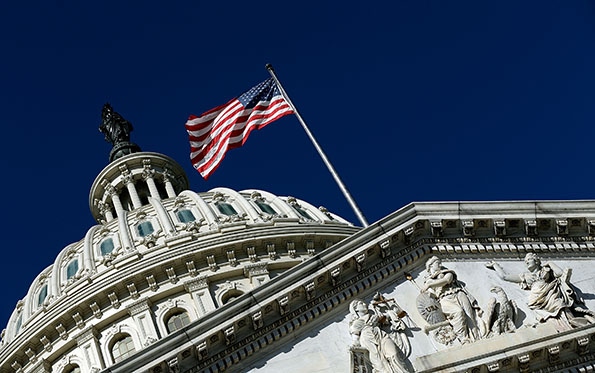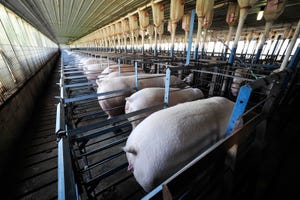
The Senate will vote on the compromise genetically modified organism labeling bill this week when it returns from the July 4 recess. Time is running short for approval of the bill since Congress will leave on July 15 for the national party conventions and the August recess. Congress does not return until after Labor Day.
Sen. Bernie Sanders (I-VT) announced that he will put a hold on the bill which could delay final consideration. A group of over 1,000 companies, cooperatives, and national and state associations sent a letter to the Senate leadership strongly supporting the bill. The group said, “Congress must ensure we avoid senseless mandates that will thwart agricultural advancement and hurt consumers – especially those low-income Americans who can least afford to pay more to feed their families.”
They reminded the Senate that USDA, Food and Drug Administration and the Environmental Protection Agency have reaffirmed their long-standing recognition of the safety of biotechnology.
Ag groups want comprehensive TTIP
The U.S. Food and Agriculture Dialogue for Trade Agreements wrote U.S. Trade Representative Michael Froman and Secretary of Agriculture Tom Vilsack stating their strong support for a comprehensive and high-standard Transatlantic Trade and Investment Partnership agreement.
The coalition wants the TTIP negotiations to resolve the most stringent European Union market access issues for U.S. food and agriculture products. The groups state they were concerned in other trade agreements the EU had been successful in exempting sensitive agricultural sectors and regulatory barriers from liberalization and were concerned the EU plans the same for TTIP.
They say, “We could not support such an outcome and we would not accept as consolation any form of consultative mechanism to deal with the controversial agriculture issues later.”
The coalition expresses concern with the EU’s high tariffs and restrictive quotas on various U.S. agricultural exports and the non-tariff barriers such as geographical indications and sanitary and phytosanitary measures. Those signing the letter included the American Farm Bureau Federation, Animal Health Institute, National Cattleman’s Beef Association, National Chicken Council, National Pork Producers Council, National Turkey Federation, North American Meat Institute and U.S. Meat Export Federation.
Need undersecretary of trade
The U.S. Meat Export Federation and the North American Meat Institute are calling on Secretary of Agriculture Tom Vilsack to move forward and establish the undersecretary of trade position as required by the 2014 farm bill.
In a letter to USDA, the two organizations encourage USDA to be “bold and to provide the necessary resources required to expand U.S. export potential and confront the challenges that face U.S. agriculture in the global market.” They ask USDA to complete its assessment of the new undersecretary position in time for the next administration to have the benefit of the department’s recommendations as it starts the process of forming its team and making key political appointments.
Senators want robust RFS
A bipartisan group of 39 Senators are calling on EPA to establish a strong Renewable Fuel Standard for 2017. In a letter to EPA Administrator Gina McCarthy, the Senators urge for a strong RFS that will support U.S. jobs and the economy, reduce the environmental impact of the transportation and energy sectors and decrease dependence on foreign oil.
They say, “When Congress adopted the RFS in 2005, and expanded it in 2007, it intended to put in place a stable, forward-looking policy to drive innovation and investments in biorefining capacity and distribution infrastructure to bring biofuels to American consumers.”
The letter was organized by Sens. Chuck Grassley (R-IA) and Amy Klobuchar (D-MN).
Record soybean acres
USDA’s National Agricultural Statistics Service reported U.S. farmers planted a record high 83.7 million acres of soybeans this year, up 1% from last year. This is according to the latest NASS “Acreage” report released last Thursday.
The report finds that growers expect to harvest 83.0 million soybean acres which would be a new record. U.S. growers planted 94.1 million acres of corn which is the third highest corn acres since 1944. They expect to harvest 86.6 million acres for grain which would be the third highest acres harvested since 1933.
NASS reports that 94% of the soybean acreage and 93% of the corn acres this year were planted with biotechnology seed varieties.
About the Author(s)
You May Also Like



